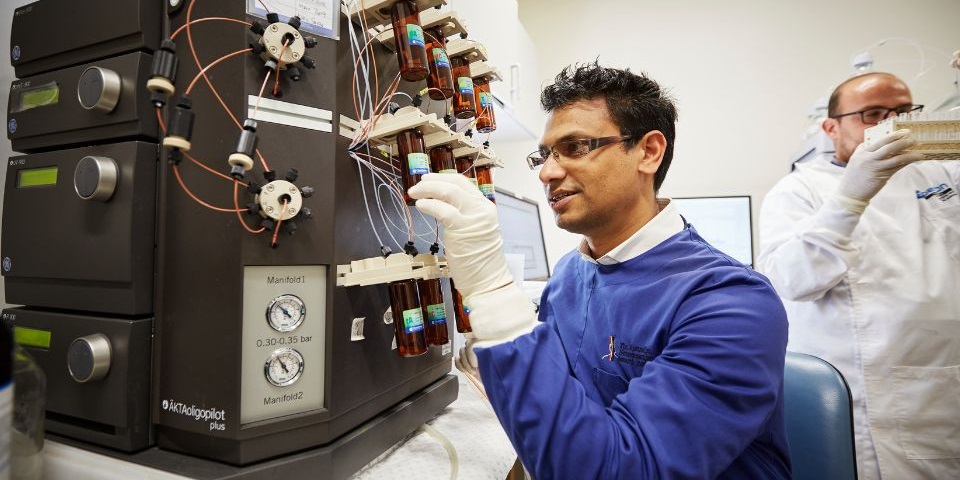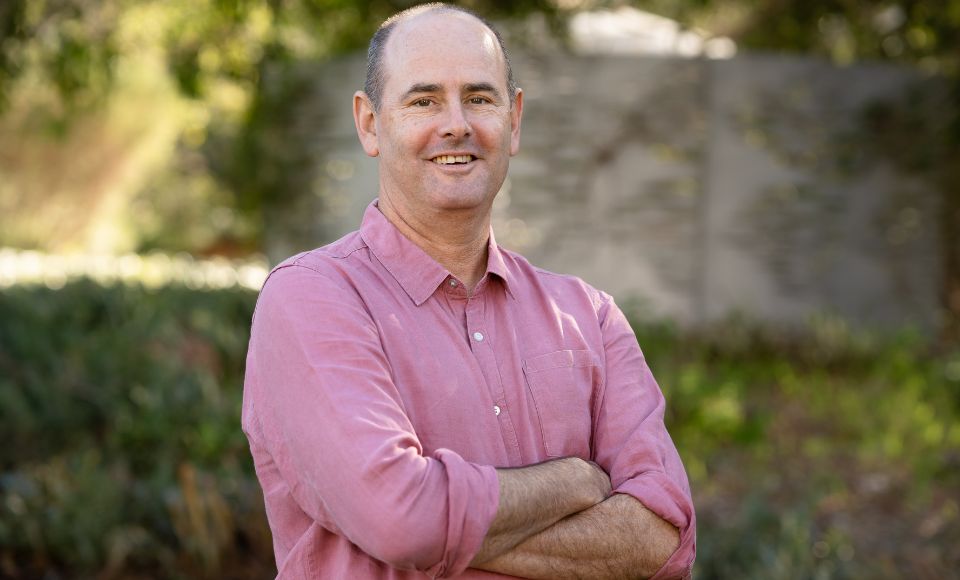Return to Our Story page
News
Lifesaving innovations to change outcomes for sepsis patients

Sepsis is one of the leading causes of death worldwide, with a 2020 report revealing it as the cause of 20% of all global deaths for the year.
Sepsis is one of the leading causes of death worldwide, with a 2020 report revealing it as the cause of 20% of all global deaths for the year.
The World Health Organisation (WHO) reported that close to half of all sepsis cases worldwide occurred in children under 5 years of age.
In 2021, researchers from Murdoch University received more than $1m in funding from the National Health and Medical Research Council to develop a rapid test that would save lives.
Murdoch immunologist Professor Andrew Currie and aptamer technology expert Associate Professor Rakesh Veedu teamed up with a local diagnostics start-up company to develop tests which could be provided to frontline hospital staff and GP clinics.
Professor Currie and Associate Professor Veedu, both leaders in their field at the Health Futures Institute’s Centre for Molecular Medicine and Innovative Therapeutics, were dedicated to improving patient outcomes worldwide.

Image caption: Professor Andrew Currie, Murdoch University
“Current tests are too slow and often miss the sepsis diagnosis, which can prove fatal due to the extremely fast progression of the disease which increases in mortality by eight per cent every hour diagnosis is delayed,” Professor Currie said.
“The condition typically presents with symptoms very similar to a number of common conditions, but things deteriorate quickly, so it’s important to be able to offer the correct treatment as soon as possible.”
Associate Professor Veedu has a deeply personal connection to the research after losing his 11-year-old niece to sepsis in 2018. It was this tragedy that led him to working with Professor Currie on developing a rapid point-of-care diagnostis test.
In Australia, almost 8000 people per year die as a result of sepsis. The impact and indiscriminatory nature of the illness was brought to the forefront of everyone’s minds in Western Australia in 2021, when 7-year-old Aishwarya Aswath died from sudden onset sepsis in a hospital waiting room.
Associate Professor Veedu said he wanted to use his knowledge and expertise to make sure other families didn’t have to go through the trauma that his and other families have had to endure.
Dedication to improving health outcomes
A team from the Health Futures Institute, led by Professor Currie, Associate Professor Veedu, partnered with biotech start-up Biotome to progress their diagnostic technology.
Research Fellow Dr Julie Hibbert in Professor Currie’s research team, pioneered cutting-edge proteomics and artificial intelligence methods to identify highly-specific blood markers critical for improving sepsis diagnosis.
By partnering with world leaders in diagnostics and therapeutics, Professor Currie and Associate Professor Veedu aim to have tests ready for market as early as possible.
Feature image: Associate Professor Rakesh Veedu in the lab.
